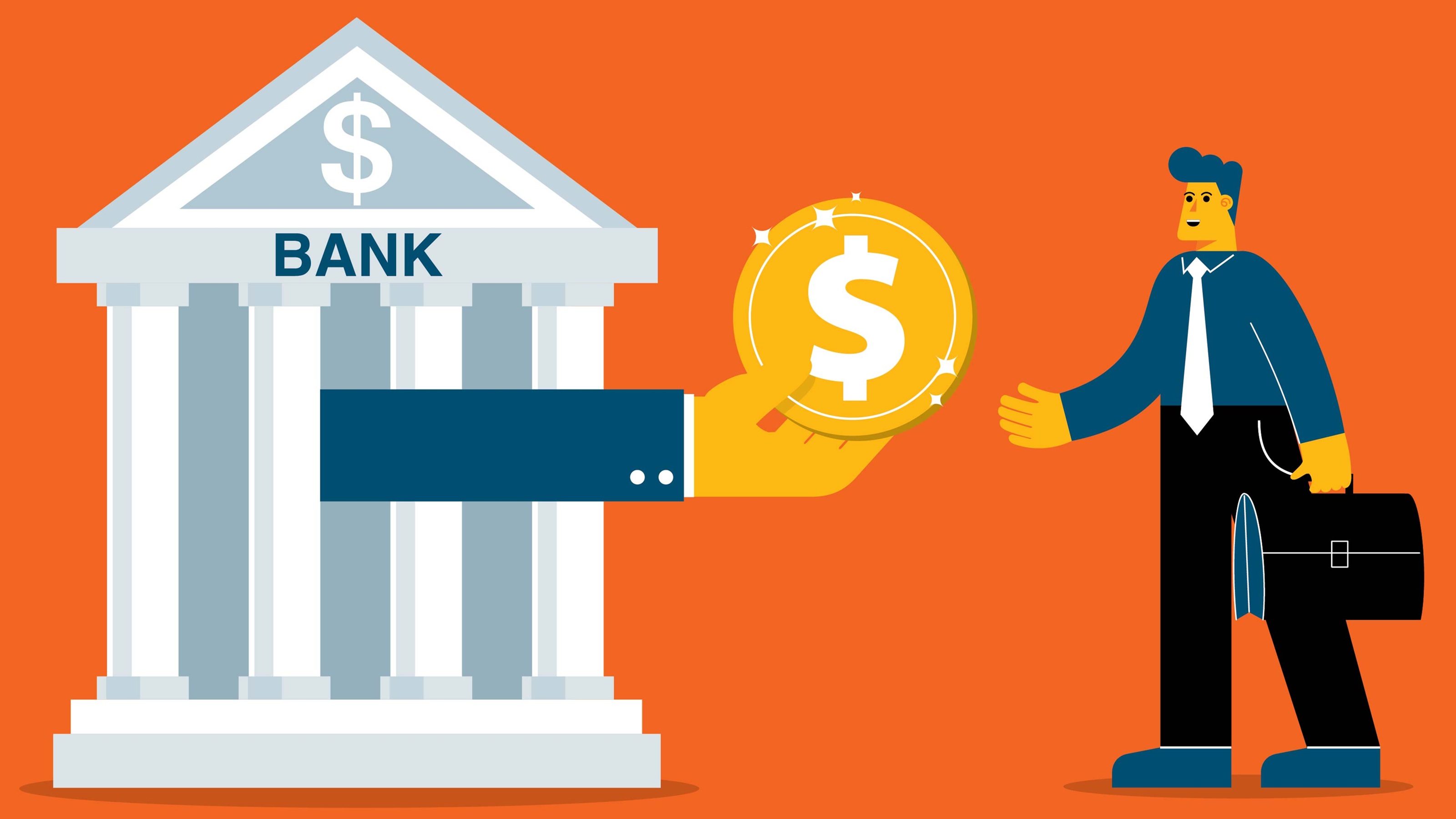Callable CDs Have High Rates: We Still Don't Recommend You Get Them
Investors must carefully consider the trade-offs, as falling interest rates could lead to reinvestment at a lower yield and make selling on the secondary market difficult.


Profit and prosper with the best of Kiplinger's advice on investing, taxes, retirement, personal finance and much more. Delivered daily. Enter your email in the box and click Sign Me Up.
You are now subscribed
Your newsletter sign-up was successful
Want to add more newsletters?

Delivered daily
Kiplinger Today
Profit and prosper with the best of Kiplinger's advice on investing, taxes, retirement, personal finance and much more delivered daily. Smart money moves start here.

Sent five days a week
Kiplinger A Step Ahead
Get practical help to make better financial decisions in your everyday life, from spending to savings on top deals.

Delivered daily
Kiplinger Closing Bell
Get today's biggest financial and investing headlines delivered to your inbox every day the U.S. stock market is open.

Sent twice a week
Kiplinger Adviser Intel
Financial pros across the country share best practices and fresh tactics to preserve and grow your wealth.

Delivered weekly
Kiplinger Tax Tips
Trim your federal and state tax bills with practical tax-planning and tax-cutting strategies.

Sent twice a week
Kiplinger Retirement Tips
Your twice-a-week guide to planning and enjoying a financially secure and richly rewarding retirement

Sent bimonthly.
Kiplinger Adviser Angle
Insights for advisers, wealth managers and other financial professionals.

Sent twice a week
Kiplinger Investing Weekly
Your twice-a-week roundup of promising stocks, funds, companies and industries you should consider, ones you should avoid, and why.

Sent weekly for six weeks
Kiplinger Invest for Retirement
Your step-by-step six-part series on how to invest for retirement, from devising a successful strategy to exactly which investments to choose.
Interest rates on bank certificates of deposit are much higher than they were at the start of this decade. Even though the Federal Reserve has hiked its short-term federal funds rate 11 times since 2022, the average one-year CD yields 2%, according to Bankrate.com.
Woo-hoo. Sure, 2% is much more than 0.76%, the average CD rate in January 2020. Nevertheless, at current rates, it would take 36 years to double your money, and that doesn’t even take inflation into account.
Moreover, the next move in the Fed’s benchmark interest rate is likely lower, not higher.
From just $107.88 $24.99 for Kiplinger Personal Finance
Become a smarter, better informed investor. Subscribe from just $107.88 $24.99, plus get up to 4 Special Issues

Sign up for Kiplinger’s Free Newsletters
Profit and prosper with the best of expert advice on investing, taxes, retirement, personal finance and more - straight to your e-mail.
Profit and prosper with the best of expert advice - straight to your e-mail.
Although the Fed says it will be patient until uncertainty clears about the strength of the economy and the ramifications of new trade tariffs, Wall Street traders expect the rate-cutting cycle that began in late 2024 to resume later this year.
So shopping for better CD rates now makes sense. Using our Bankrate tool allows you to compare options fast:
In some cases, you can get higher yields through a callable CD, a type of CD that gives the issuer the right to redeem it before it matures. But make sure you understand that CDs, including callables, can have good and bad features.
Locking in
A basic CD is fairly simple. You invest a certain amount with your bank for a set period of time, and the bank pays you interest. If you take out money before the CD matures, you’ll have to pay a penalty.
Those penalties vary from bank to bank, but they typically range from three to 12 months’ interest, three months for a one-year CD and 12 months for longer maturities, particularly five-year CDs.
CDs typically offer higher rates than bank money market accounts. Smart savers can use CDs to lock in those higher rates for months or years. Others use CDs to save for goals in the near future — and to make sure they don’t spend the money instead.
The call feature adds a bit more complexity.
For example, in late May, Fidelity Investments offered a one-year CD from JPMorgan Chase Bank with an annual percentage yield of 4.3% — more than twice the average one-year CD yield. (Fidelity puts the bank and the saver together in this transaction; JPMorgan Chase is the CD issuer.) The CD is insured by the federal government and has a minimum investment of $1,000.
Why the high yield?
Here’s where we come to the bad part. The CD is callable, meaning that JPMorgan Chase can call back the CD and return your principal with the interest earned to date.
Typically, that happens when interest rates fall and the issuer would prefer to offer you CDs with lower rates. In that event, you could be looking at reinvesting that cash in a CD with a significantly lower yield.
And that’s why you get the tasty rate from the callable CD at the outset: The higher interest rate is to compensate you for the risk that you’ll get a lower return than you may have wanted over the period you initially chose.
If rates go higher, it’s unlikely that the bank will call your CD. Deposits are an expense for banks, and they prefer to pay lower interest rates on customer accounts.
If you want to get a higher rate, you’ll have to wait until the CD matures, pay the early-withdrawal penalty or, if it’s a brokered CD, sell it on the secondary market.
The last option could be particularly unpleasant. Typically, selling a low-rate brokered CD when other brokers (including yours) are offering CDs with better yields is like trying to peddle hamburgers at a vegan convention.
You don't want a haircut
To sell a CD that pays 3% into a market where new CDs are yielding 4%, for example, you’d have to take a haircut on the principal, settling for an amount that’s below the face value, because buyers would naturally pay less for a below-market yield. And that’s assuming you can even find a buyer in the first place.
The call feature helps the bank, says Greg McBride, chief financial analyst at Bankrate. “It is very much a ‘heads I win, tails you lose’ proposition.”
As with many other complicated investment products, callable CDs tend to be sold, not bought, as the expression goes.
“It’s not a staple offering,” McBride says. “It’s kind of a unique structure, but it’s a structure that’s to benefit the issuing bank, not the depositor.”
Callable caveats
Be particularly wary of callable CDs if you use a CD ladder (arranging to have CDs of various maturities mature at regular intervals). A called CD could make you scramble for a substitute — an annoyance that could nullify one of the big advantages of having a CD ladder in the first place.
Typically, callable CDs have a period at the beginning of their term when they can’t be called, and they have a set schedule for when a call can occur.
In the example above, JPMorgan Chase can’t call the CD until November 2025, after which it can issue a call any month until the CD matures in 2026.
Don’t confuse the CD’s maturity date with its call date. If you’re looking to lock in current interest rates for five years, you may not be able to if the CD has a call date in two years.
“Be certain about what the actual maturity date of the CD is, and that it’s consistent with your investment time frame,” McBride says.
Typically, a bank will disclose both its current yield and its “yield to worst” — that is, up until the first possible date the bank may call the CD.
A more cumbersome process
CDs with call features aren’t common, but they aren’t rare either. Large banks tend to offer their callable CDs through brokerages, says Ken Tumin, founder of DepositAccounts.com, a rate-comparison site.
If you're searching for a brokerage, use our tool from Bankrate to compare options quickly:
Although many CD investors go through their brokerage accounts to make it easier to shop for CDs, callable CDs can make the process more cumbersome.
“My readers throughout the years haven’t been fond of them,” he says. “If they do use brokered CDs, they generally stick with non-callable.”
Many brokerages allow you to screen out callable CDs. Even so, always look for the terms of the CD offering before you buy.
If your main goal is to get a bit more yield over a short period of time, a callable CD might be worth it, Tumin says.
But if you’re looking for simplicity, callable CDs may not fit the bill.
Note: This item first appeared in Kiplinger Personal Finance Magazine, a monthly, trustworthy source of advice and guidance. Subscribe to help you make more money and keep more of the money you make here.
Related Content
Profit and prosper with the best of Kiplinger's advice on investing, taxes, retirement, personal finance and much more. Delivered daily. Enter your email in the box and click Sign Me Up.

-
 Quiz: Do You Know How to Avoid the "Medigap Trap?"
Quiz: Do You Know How to Avoid the "Medigap Trap?"Quiz Test your basic knowledge of the "Medigap Trap" in our quick quiz.
-
 5 Top Tax-Efficient Mutual Funds for Smarter Investing
5 Top Tax-Efficient Mutual Funds for Smarter InvestingMutual funds are many things, but "tax-friendly" usually isn't one of them. These are the exceptions.
-
 AI Sparks Existential Crisis for Software Stocks
AI Sparks Existential Crisis for Software StocksThe Kiplinger Letter Fears that SaaS subscription software could be rendered obsolete by artificial intelligence make investors jittery.
-
 5 Top Tax-Efficient Mutual Funds for Smarter Investing
5 Top Tax-Efficient Mutual Funds for Smarter InvestingMutual funds are many things, but "tax-friendly" usually isn't one of them. These are the exceptions.
-
 Why Invest In Mutual Funds When ETFs Exist?
Why Invest In Mutual Funds When ETFs Exist?Exchange-traded funds are cheaper, more tax-efficient and more flexible. But don't put mutual funds out to pasture quite yet.
-
 Social Security Break-Even Math Is Helpful, But Don't Let It Dictate When You'll File
Social Security Break-Even Math Is Helpful, But Don't Let It Dictate When You'll FileYour Social Security break-even age tells you how long you'd need to live for delaying to pay off, but shouldn't be the sole basis for deciding when to claim.
-
 I'm an Opportunity Zone Pro: This Is How to Deliver Roth-Like Tax-Free Growth (Without Contribution Limits)
I'm an Opportunity Zone Pro: This Is How to Deliver Roth-Like Tax-Free Growth (Without Contribution Limits)Investors who combine Roth IRAs, the gold standard of tax-free savings, with qualified opportunity funds could enjoy decades of tax-free growth.
-
 One of the Most Powerful Wealth-Building Moves a Woman Can Make: A Midcareer Pivot
One of the Most Powerful Wealth-Building Moves a Woman Can Make: A Midcareer PivotIf it feels like you can't sustain what you're doing for the next 20 years, it's time for an honest look at what's draining you and what energizes you.
-
 Stocks Make More Big Up and Down Moves: Stock Market Today
Stocks Make More Big Up and Down Moves: Stock Market TodayThe impact of revolutionary technology has replaced world-changing trade policy as the major variable for markets, with mixed results for sectors and stocks.
-
 I'm a Wealth Adviser Obsessed With Mahjong: Here Are 8 Ways It Can Teach Us How to Manage Our Money
I'm a Wealth Adviser Obsessed With Mahjong: Here Are 8 Ways It Can Teach Us How to Manage Our MoneyThis increasingly popular Chinese game can teach us not only how to help manage our money but also how important it is to connect with other people.
-
 Looking for a Financial Book That Won't Put Your Young Adult to Sleep? This One Makes 'Cents'
Looking for a Financial Book That Won't Put Your Young Adult to Sleep? This One Makes 'Cents'"Wealth Your Way" by Cosmo DeStefano offers a highly accessible guide for young adults and their parents on building wealth through simple, consistent habits.